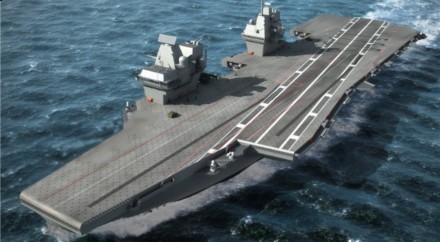Joseph Heller’s Catch-22 is a work of genius. His description of the absurdities of petty military bureaucracy are devastatingly accurate and despite the humour, frightening, because anyone who’s been in the forces knows it’s all too real. When you combine it with the Peter Principle that tells us everyone rises to their level of incompetence, we begin to get a picture of what life must be like at the highest levels of the Ministry of Defence.
For most of its time in office, the Labour government appointed ministers of breathtaking incompetence to run the department. They in turn favoured admirals, generals, and air marshals who spoke the same language, that is, when they spoke at all. How else do we explain the shambles that we have today, with front-line troops fighting a hot war while badly equipped and about to bear the brunt of the economic cutbacks? Our military capability is tiny and becoming miniscule.
I would like to imagine how a conversation might have gone between Wing Commander Guy Gibson and whoever his boss was following the successful Dam Buster mission. I say “whoever his boss was” because I’m certain ‘Bomber’ Harris would never have survived in the kind of climate we have in the modern Ministry of Defence.
I think it would have gone something like this:
HQ: Gibson, HQ here, do you hear me, Old Boy? Over.
Gibson: Loud and clear, HQ, over.
HQ: Good show on the dams. Pass on our congratulations to your crew.
Gibson: Thank you Sir, they will appreciate that.
HQ: Now, here’s the thing, Gibson. Now that there are no dams to attack, we’re rather over-manned in the dam-busting role.
Gibson: I see Sir.
HQ: So what we need you to do is find the nearest airfield, and land your plane there.
Gibson: But they’re all enemy-held airfields over here Sir.
HQ: Well that’ll be more mouths for them to feed, eh? Ha ha.
Gibson: But don’t you want us to come back Sir?
HQ: No. Do not come back Gibson, we don’t need you any more.
Gibson: But we could re-train Sir?
HQ: Not on Old Boy, we got rid of training in the last round of cutbacks.
Gibson: There must be something we could do Sir, they might rebuild the dams or something?
HQ: No, we’ve thought about that, they won’t and there’s no point maintaining capabilities we don’t need. There is a war on, you know.
Gibson: But what do I tell my crew?
HQ: Tell them these are difficult times for the economy and we must all share the pain.
Gibson: Can’t we make some economies at HQ instead Sir? Cut back on some of the back office staff?
HQ: Really, Gibson, I’m surprised at you. We at HQ are going to have to work much harder to manage the same number of operations with fewer front-line staff. I myself am having to accept a pay rise to reflect the added responsibility. I don’t want it, but we don’t all get what we want in these situations, Gibson, and don’t you forget it.
Gibson: I’m sorry Sir, I don’t know what came over me.
HQ: So just go ahead and land your plane, and hand yourselves over to the enemy, there’s a good chap.
Gibson: As you wish, Sir.
HQ: And with any luck, you’ll have that plane paid-off by the time the war’s over.
Gibson: Excuse me, Sir?
HQ: Well, we’ll deduct the least amount we can from your wages, but you’ll have to pay for the plane you’re not bringing back.
Gibson: But it’s not my choice not to bring it back, you’ve ordered me not to!
HQ: We can’t make an exception for you, Gibson, or there would be no incentive for the other crews to bring their planes back.
Gibson: They don’t need an incentive to bring their planes back, Sir, they will do anything they can to defend their country.
HQ: Now Gibson, that’s just silly talk. Do you think we at HQ would put in the hours that we do, working until almost gone 5 o’clock, the endless committee meetings – with no biscuits I might add, all those important papers to read, if we weren’t incentivised? Reports don’t just write themselves, you know. Everyone needs incentives.
Gibson: But the Nazis don’t.
HQ: Exactly, do you want us to all end up like them? That’s what this war is all about and that’s why we need incentives.
Gibson: Very well Sir, I’ll crash-land the plane forthwith.
HQ: Good show, Gibson.
Gibson: Thank you, Sir.
HQ: By the way, Gibson.
Gibson: Yes, Sir?
HQ: We’re going to award you a Victoria Cross.
Gibson: That’s very kind of you, Sir.
HQ: It’s the least we can do. I’ll deduct the cost from your salary of course, but would you like it presented by the King?
Gibson: How much extra would that be, Sir?
HQ: Now you’re getting the idea, Gibson.

